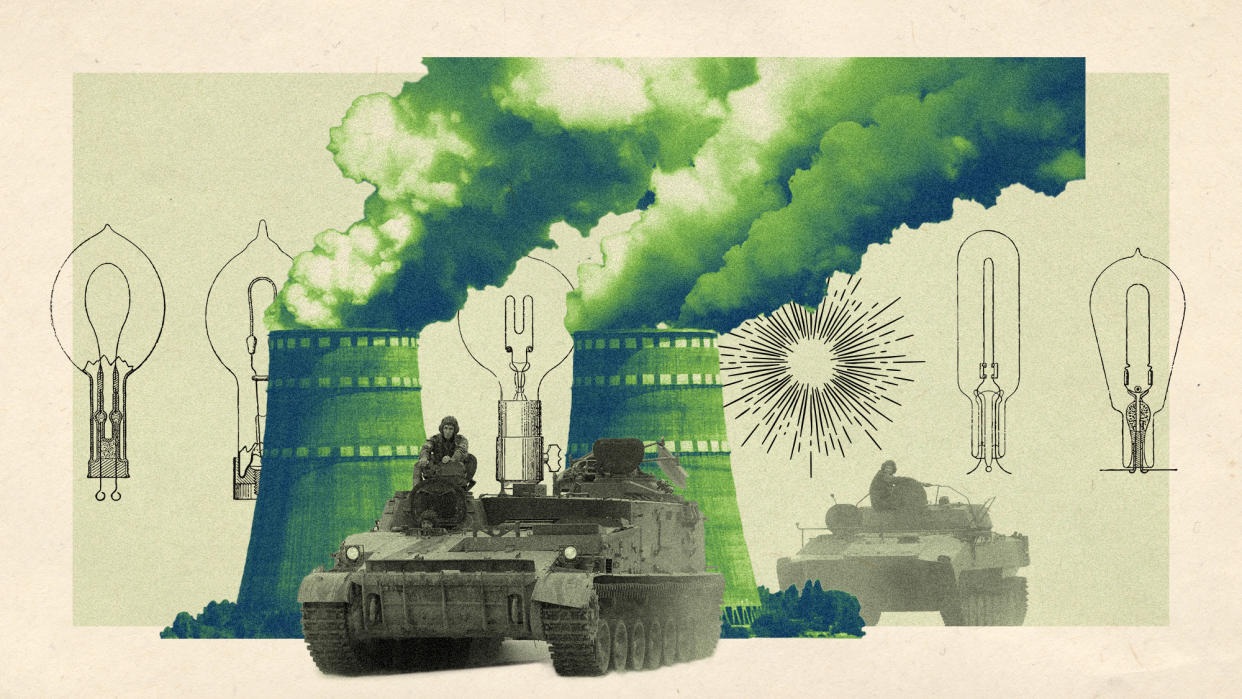A 'nuclear timebomb': tensions rise over Ukraine power plant

- Oops!Something went wrong.Please try again later.
The UN's nuclear watchdog has demanded that Russia withdraw its forces from Ukraine's Zaporizhzhia nuclear power plant two years after it captured the facility.
Greenpeace described the occupied plant as a "nuclear timebomb" and accused Vladimir Putin of threatening an "unprecedented escalation" if the Russian president orders the reactors to be restarted.
Ukraine is haunted by the legacy of the Chernobyl nuclear disaster of 1986, so tensions and fears over Moscow's intentions are high.
A power plant on the frontline
The plant is located on the Dnipro River in eastern Ukraine and Ukrainian forces occupy the bank opposite, leaving it "in the sights of both sides' militaries", said The Guardian. Ukraine and Russia have blamed each other for shelling that has downed power lines.
"Captured by the Russian invaders" in the early stages of the war in March 2022, the "vast" Zaporizhzhia nuclear plant has been "on the frontline of the war ever since", added the paper. All six of its reactors are shut down, but it still needs "constant power" to keep fuel in those reactors cool and prevent a "potentially catastrophic meltdown", said Reuters.
Russia initially wanted to connect the reactors to its own energy grid but that plan was abandoned, said The Guardian. "But recent comments from officials have suggested a new attempt to restart nuclear energy generation may take place later this year."
In December, Yuriy Chernichuk, the Russian-appointed director of the site, told the plant's staff newsletter that 2024 is an "anniversary year for the station and the station is determined to work at full capacity".
But Rafael Grossi, head of the International Atomic Energy Agency (IAEA), warned that "any such action would require a number of considerations", including that it is "an active combat zone" and that "this plant has been in shutdown for a prolonged period of time", said The Straits Times.
Shaun Burnie, a nuclear specialist with Greenpeace Germany, said that "no nuclear regulations exist anywhere in the world that permit a nuclear plant to operate on the frontline in an active war zone".
The pressure group also said that there was concern over whether Rosatom, the Russian state-owned energy provider now running the plant, could ensure there was enough cooling water available to safely operate even a single reactor.
In the IAEA's fourth resolution condemning Russia's actions against Ukrainian nuclear facilities, it called for the "urgent withdrawal of all unauthorized military and other unauthorized personnel" and for the plant to be "immediately returned to the full control of the competent Ukrainian authorities".
Overseeing a Russian 'nuclear timebomb'
There are no signs of Russia adhering to the request, but in a meeting with Grossi earlier this month, Putin did acknowledge that "it is very important, on a planetary scale" to ensure "nuclear energy safety and compliance with safety standards throughout the world". The talks between the two men were described as "tense" by the RIA Novosti news agency, but a spokesperson for the IAEA denied the description.
Greenpeace accused Grossi of complacency, and insisted restarting any of the reactors should be comprehensively ruled out. The IAEA "must not play the role of pretend regulator" in "overseeing a Russian nuclear timebomb", said a spokesperson, but instead "must make clear that safe operation is impossible".
Over the past 18 months the plant has been cut off from external power eight times, forcing it to rely on diesel generators, said Reuters, so safety there "remains precarious".

